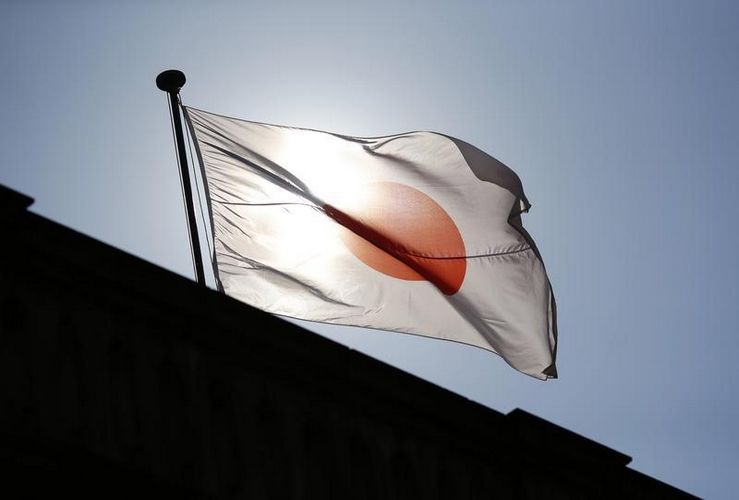The elimination of legacy swaps contracts has hit new records in 2014 as dealers accelerate the clear-out of their weighty derivatives portfolios against a backdrop of rising capital charges and leverage constraints under Basel III.
Activity could further increase in 2015 as the launch of new services continues apace, with this week delivering the first multilateral tear-up service for yen swaps in a Japanese clearing house, as well as the first cycle for eliminating bilaterally-transacted Turkish lira cross-currency swaps.
The Japanese Securities Clearing Corporation completed its inaugural cycle for cleared Japanese yen interest rate swaps alongside post-trade processing firm TriOptima on Tuesday. 14 members participated, compressing total notional in of ¥9.86trn (US$82.24bn).
While many CCPs offer their own service for clearing members to compress trades on a risk-free unilateral basis, third parties are expected to remain vital for offering multilateral services, where high matching ratios can be achieved within pre-determined risk parameters.
“We are running about three cycles per week in different asset classes and now within multiple CCPs in rates compression, which give us the necessary scalability to run these cycles efficiently,” said Peter Weibel, CEO of triReduce.
”Our customers that are also clearing members appreciate that triReduce compression are offered in the same way across different asset classes and also in different CCPs; it makes it operationally much easier for the client.”
TriOptima, which spearheaded both of last week’s developments, has eliminated more than US$140trn of superfluous derivatives trades so far this year, eclipsing the previous high of US$80trn that was achieved in 2012. It takes notional value of contracts torn up through the firm’s triReduce service to more than US$520trn since the operation got underway in 2003.
Figures for this year have been boosted by the firm recommencing its agreement with LCH.Clearnet’s SwapClear to run multilateral services alongside the CCP, which has US$400trn of notional outstanding in cleared interest rate swaps. Cleared swap tear-ups represented more than 90% of triReduce activity during 2014, a stark shift from 2009 when bilateral trades represented over half of eliminated volume.
The success has triggered the first ever annual decline in notional outstanding at SwapClear and has driven agreements to replicate the service across other CCPs. (“Compression drives down CCP swap notionals” IFR 2061). TriOptima is expected to launch its first cycle alongside Eurex in the first quarter of next year.
Although yen swaps represent the majority of JSCC’s business with US$52trn-equivalent outstanding, it also clears Australian, New Zealand, Hong Kong and Singapore dollars as well as Indian rupees and Korean won, which could be introduced into cycles subject to liquidity.
”It makes sense to start compressing the currencies cleared in a CCP with the largest notional amounts, but if demanded by clearing members and supported by the CCP we are happy to run cycles in currencies with more modest outstanding notional amounts,” said Weibel.
Cross-currency expansion
In addition to the operational and capital efficiencies that dealers can achieve through compression, next year sees counterparties forced to exchange initial margin on uncleared trades such as cross currency swaps, inflation swaps and swaptions, further driving demand for such services on bilateral portfolios.
TriOptima added to its cross-currency services this week with completion of its first cycle in Turkish lira/US dollar, eliminating US$213bn notional of trades across 17 financial counterparties.
”The capital costs on cross-currency swaps is high and that’s driving the banks to reduce their outstanding notional amounts of CCS,” said Weibel.
The firm began with floating/floating compression cycles on vanilla currencies, beginning in Japanese yen in April of this year (“Cross-currency compression cycles begin” IFR 2032) and has since eliminated more than US$500bn of uncleared trades across six currencies.
The shift to more exotic currencies has brought more complexity alongside a change from floating/floating instruments to fixed/floating swaps with added resets.
”Having completed our latest CCS compression cycle in dollar-lira, we have now offered the full range of CCS compression including fixed/float and non-resetting which are more complex to deliver,” said Weibel.
Demand for the service is particularly strong in Asia, where TriOptima intends to launch the first Chinese Renminbi cycle in the first quarter and also add Korean Won and Russian rubles.
”The cycle frequency in CCS compression is driven by demand. For the more liquid currencies a semi-annual frequency seems right. We will be running another dollar-yen cycle soon,”said Weibel.
